Are you ready to explore the exciting world of franchise agreements? Negotiating these contracts can seem daunting, but it's crucial for establishing a solid foundation for your business partnership. With the right approach and understanding, you can ensure that your interests are protected while fostering a successful collaboration. Dive into our article to unlock essential tips and strategies that will empower you in your franchise negotiation journey!
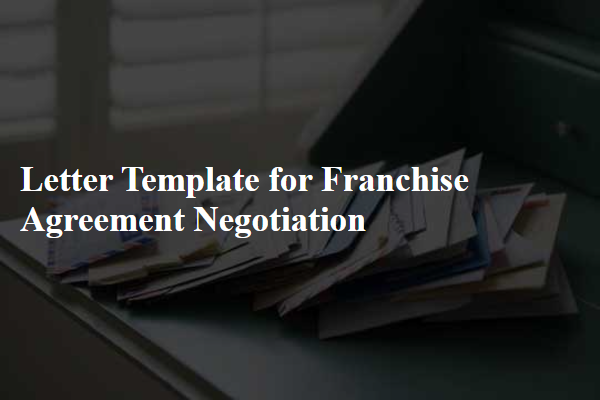
Clear Identification of Parties
The franchise agreement negotiation process involves a clear identification of the parties involved, essential for establishing legal responsibilities and rights. In this context, the Franchisor, typically a company like McDonald's Corporation, and the Franchisee, an individual or entity seeking to operate a franchise location, must be defined explicitly. The Franchisor includes trademarks, such as the Golden Arches logo, which symbolize brand identity and integrity. The Franchisee must provide relevant information, including the legal business name, address, and type of entity (LLC, corporation) along with identification numbers like tax ID and state registration details. A well-defined introduction clarifies roles and expectations forming the basis for a mutually beneficial relationship.
Terms and Duration of Agreement
Franchise agreements often encompass specific terms and durations that are crucial for both the franchisor and the franchisee. Typically, the initial term of a franchise agreement ranges from five to twenty years, depending on the franchise model, market conditions, and brand reputation. Renewal options may extend the duration further, usually under agreed-upon terms to maintain brand standards and operational guidelines. In many instances, franchise agreements include clauses that detail conditions for termination, renewal procedures, and the responsibilities of each party throughout the contract. Clear definitions of key milestones, performance benchmarks, and any potential fees associated with renewal or termination are essential to ensure a mutual understanding of the agreement's longevity and conditions.
Financial Obligations
Franchise agreements encompass essential financial obligations that both franchisor and franchisee must adhere to for a successful partnership. Initial franchise fees typically range from $20,000 to $50,000 depending on the brand's reputation and market demand. Ongoing royalty fees usually amount to 5% to 10% of the franchisee's monthly gross revenue, impacting profitability directly. Additionally, franchisees often contribute to a marketing fund, which can constitute another 1% to 3% of gross sales, promoting brand image and visibility in local markets. Understanding these costs is crucial; inadequate financial planning can lead to deficiencies in operational liquidity, meaning franchisees may struggle to cover daily expenses or unexpected costs. A detailed examination of these financial obligations before signing ensures both parties maintain a clear understanding of their responsibilities, fostering a transparent business relationship.
Intellectual Property Rights
Franchise agreements involve complex elements such as Intellectual Property Rights (IPR). Intellectual Property Rights encompass trademarks, patents, copyrights, and trade secrets related to the franchise. For example, a popular fast-food chain might trademark its logo and unique menu items, which are essential for brand identity. Negotiating IPR terms is crucial for establishing ownership, usage rights, and protection against infringement. Specific clauses may define how franchisees can utilize brand assets, including branding materials and proprietary recipes, while ensuring compliance with established standards. Effective IPR management safeguards both the franchisor's brand integrity and the franchisee's investment. Disputes may arise if terms are unclear; thus, clarity in outlining the scope of rights and obligations is essential for a successful partnership.
Termination and Renewal Conditions
Termination conditions in a franchise agreement govern the circumstances under which either party can end the partnership. Commonly outlined are specific events that may trigger termination, including failure to meet performance standards, breach of contract terms, or bankruptcy. Renewal conditions typically stipulate the terms under which the franchise can be renewed after the initial contract period, often requiring the franchisee to meet certain financial benchmarks or operational standards to qualify. Additionally, both parties may need to agree on a renewal notice period, usually ranging from 30 to 90 days prior to the expiration of the agreement, ensuring clear communication and planning for both the franchisor and franchisee.
Letter Template For Franchise Agreement Negotiation Samples
Letter template of franchise agreement negotiation for new business opportunities.
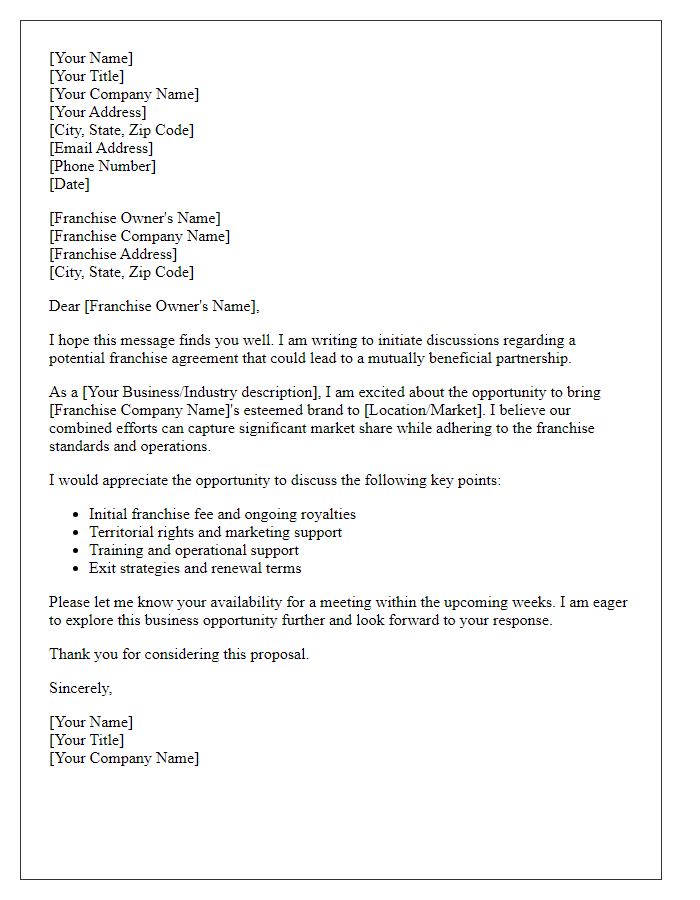
Letter template of franchise agreement negotiation for existing franchise expansion.
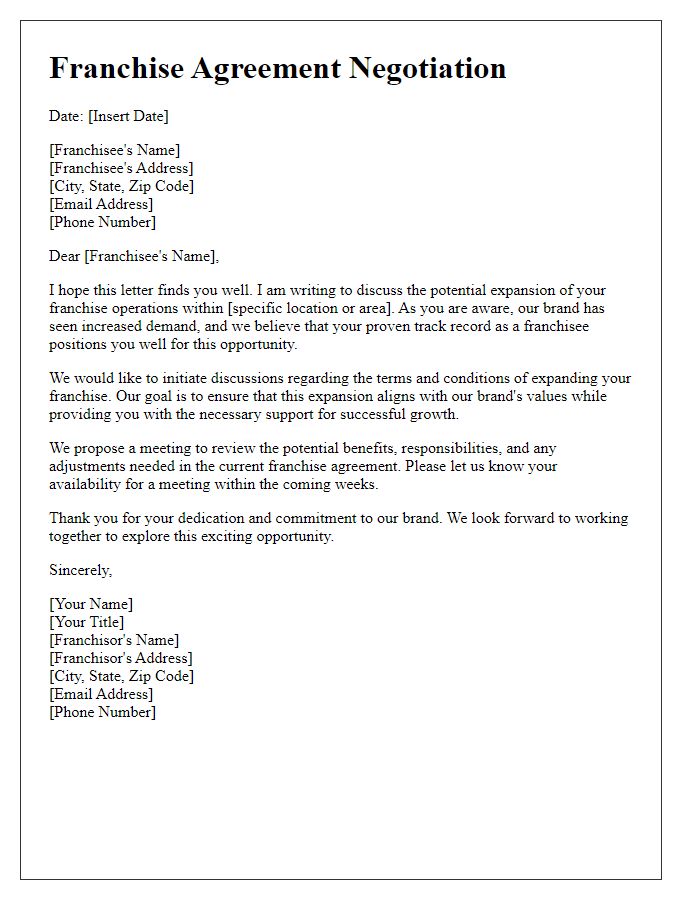
Letter template of franchise agreement negotiation for royalty adjustments.
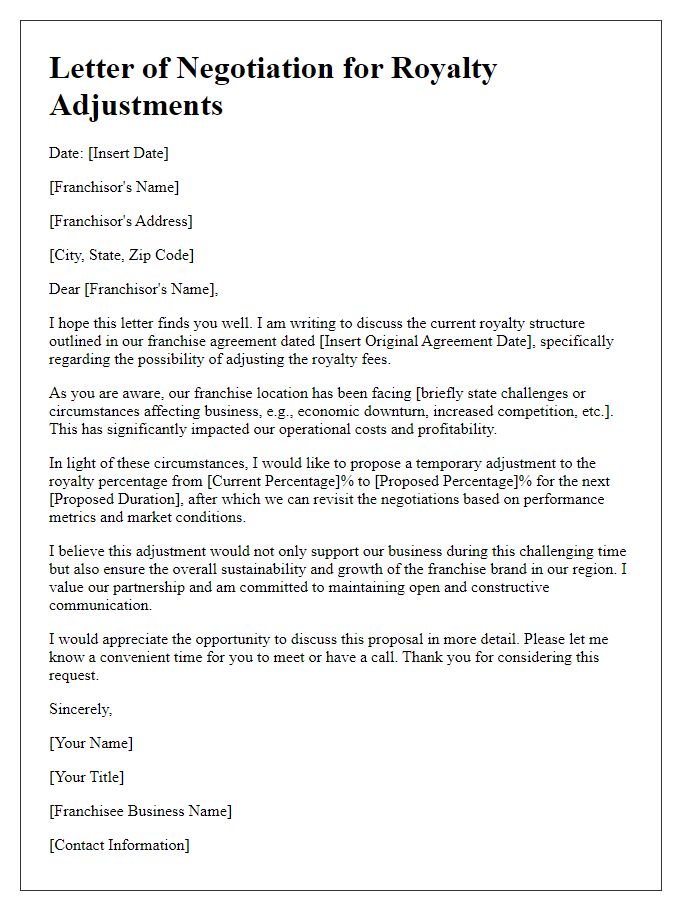
Letter template of franchise agreement negotiation for territory disputes.
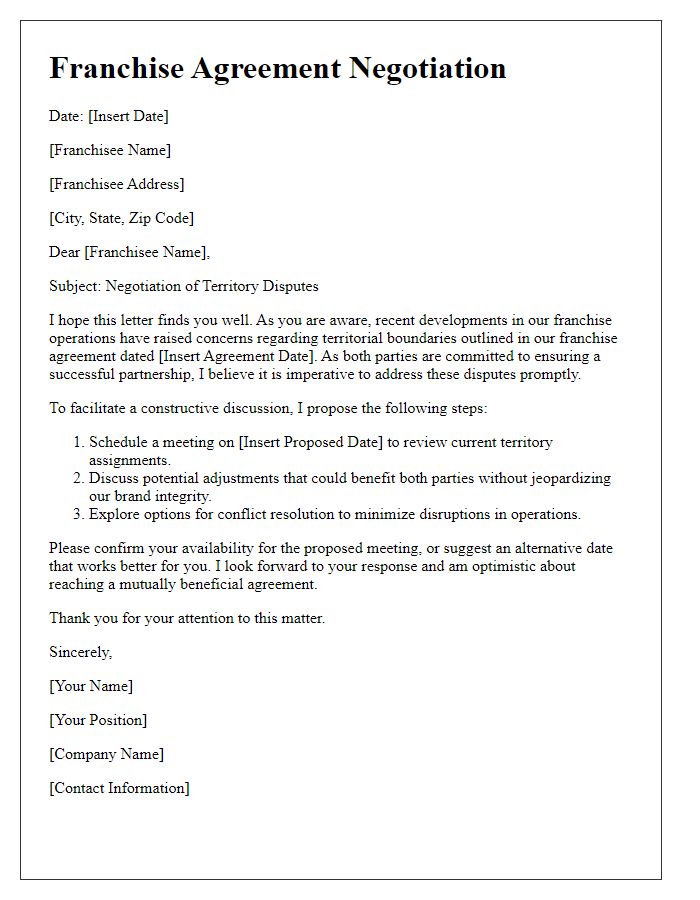
Letter template of franchise agreement negotiation for operational support enhancements.
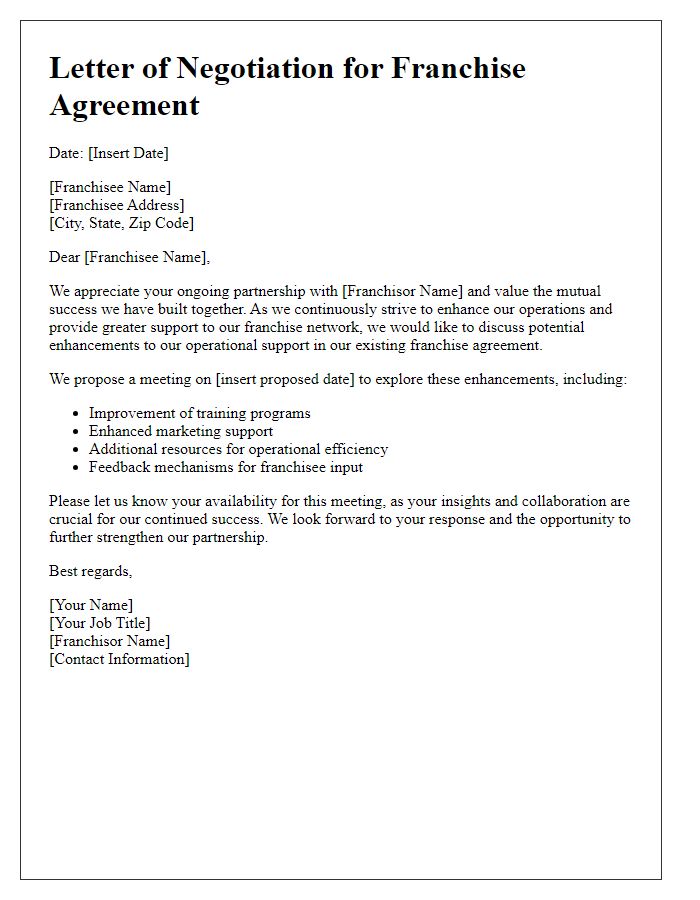
Letter template of franchise agreement negotiation for marketing collaboration.
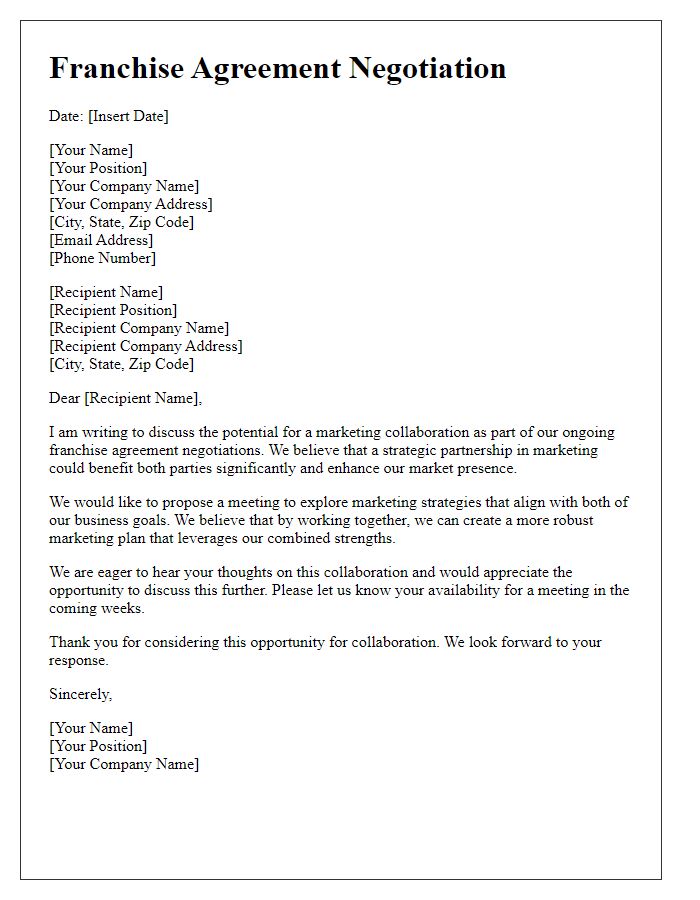
Letter template of franchise agreement negotiation for renewal terms discussion.
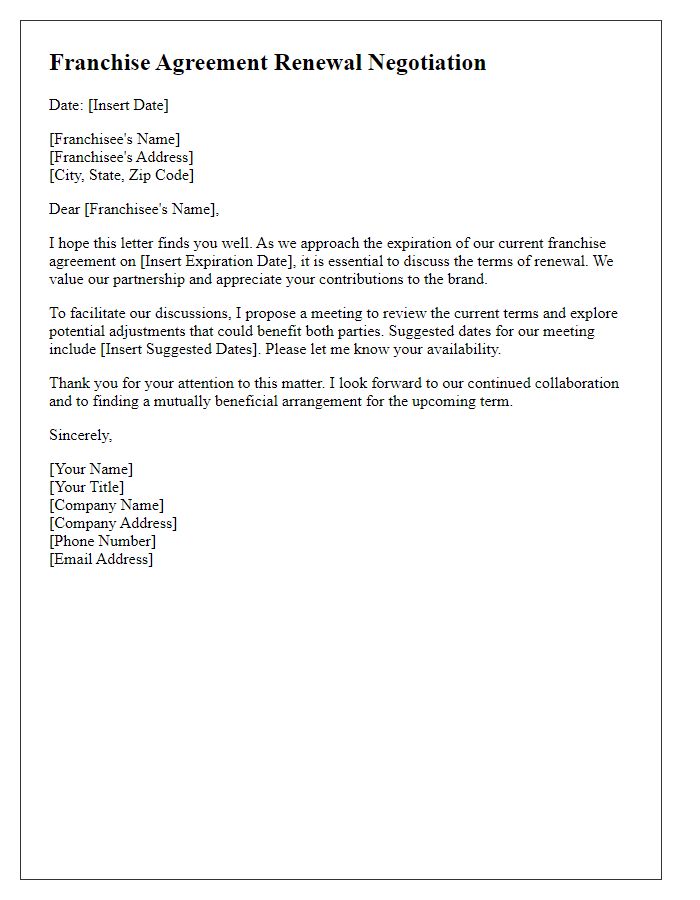
Letter template of franchise agreement negotiation for franchisee training programs.
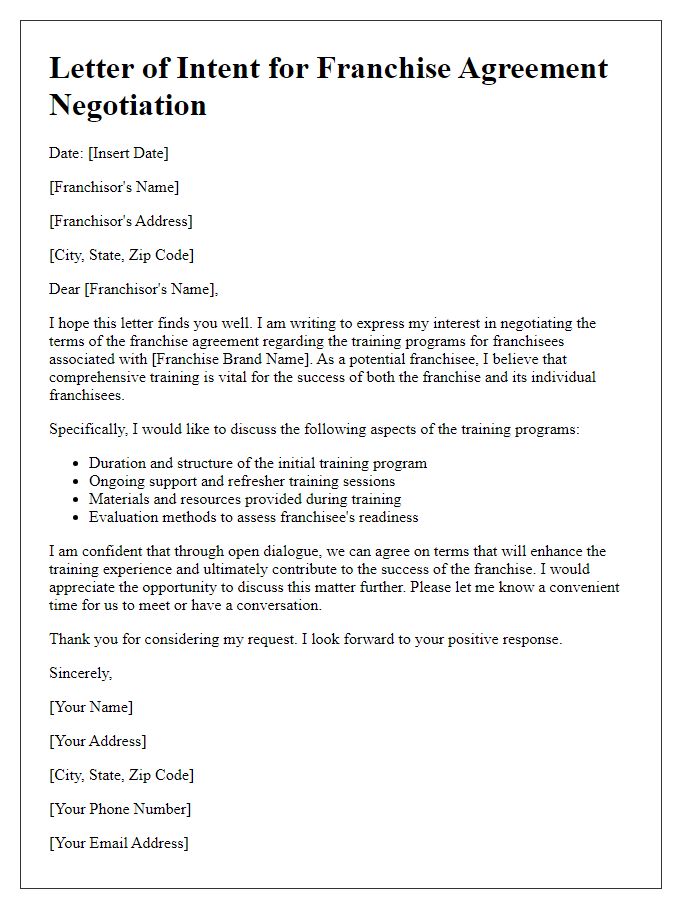
Letter template of franchise agreement negotiation for product offerings updates.
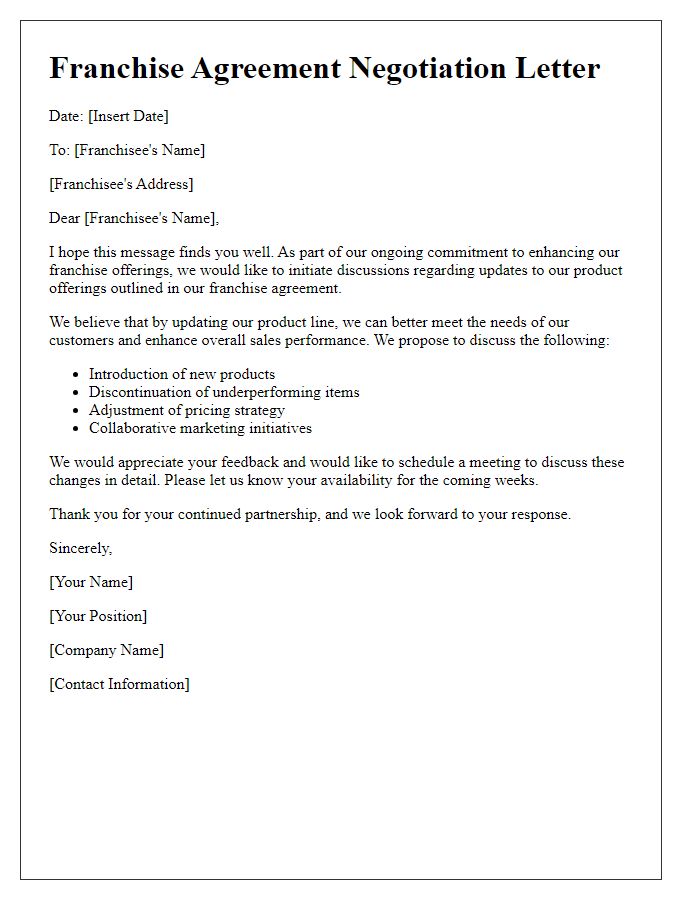

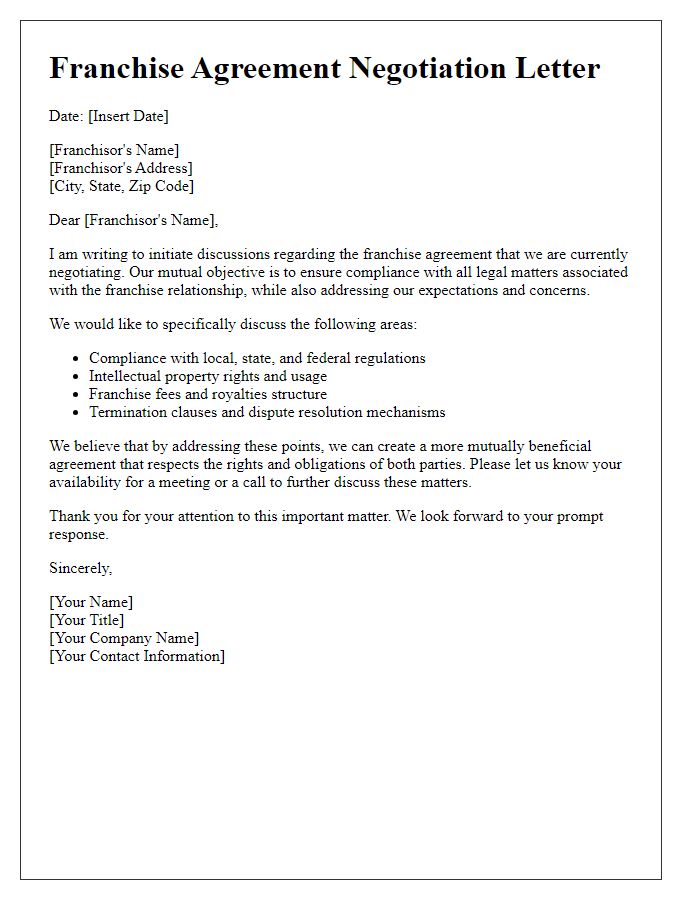


Comments